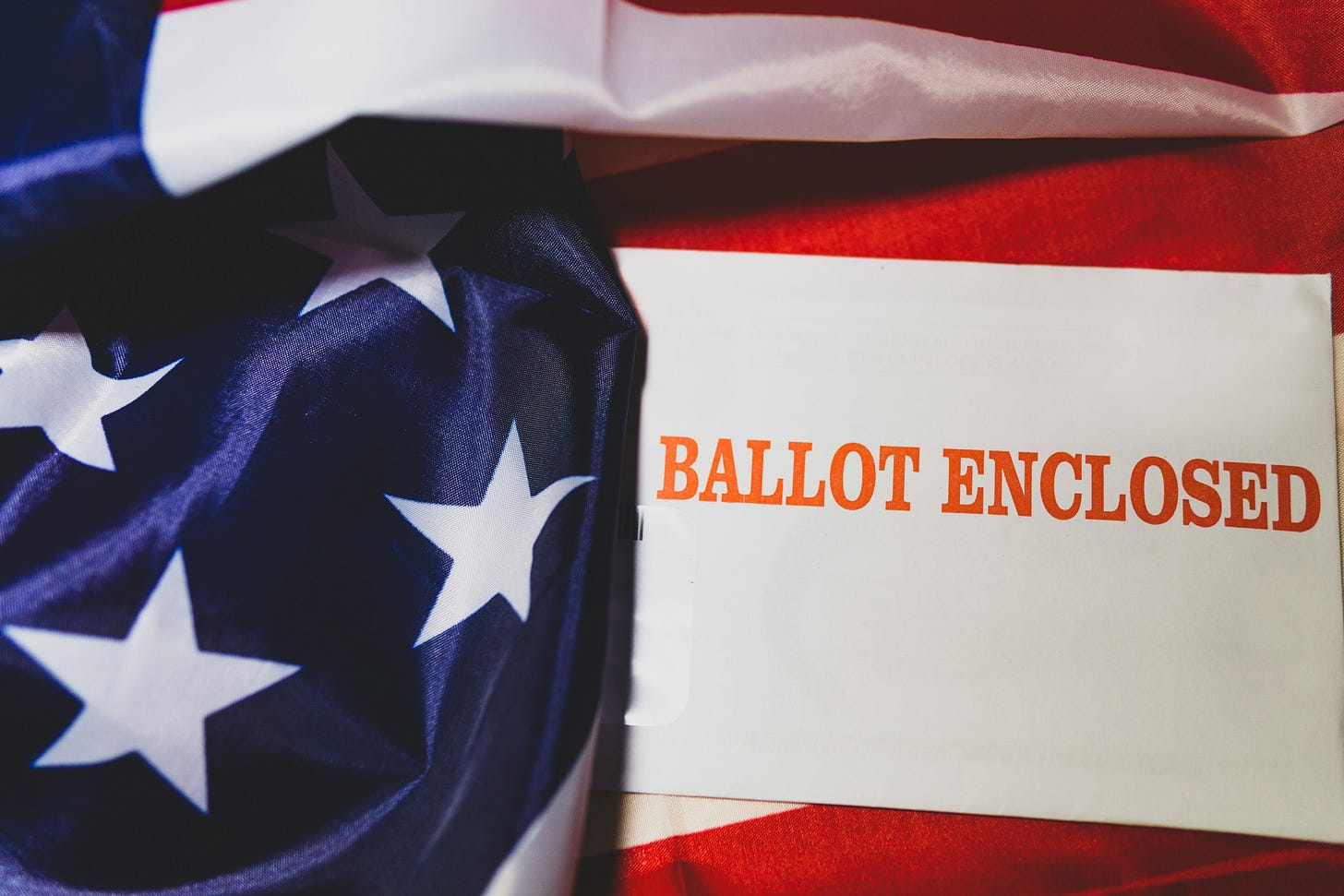It is already mid-morning, and I am just now drafting this letter to you. Is it because I’m not sure what to write this week? Is it because, instead of writing, I have been collecting old electronics for donation—a task that suddenly seemed urgent this morning?
Am I incorrigibly distracted, or am I still figuring out what it means to live—and write—in a post-election world?
I never thought I would be in the “opinion” business. That’s not why I wrote my first book years ago, though it turns out I had opinions about the ways Christians often thought and talked about desire. I sensed I only had half a story about desire and that I wouldn’t be able to pray and live and work and love without the other half of that story. I wrote that book to recover some truth for myself, though I have long since realized that there are others I am writing for, too.
You, of course. You, who read here week after faithful week. Thank you.
I was enculturated to think that “disagreement” is generally “disagreeable,” that it certainly isn’t usually becoming of people who want to play nice at church and get along. (Maybe this was really a gendered message all along, meant more for women who needed to remember the limits of their welcome.) But now, more than a decade into this gig of public “speechifying,” I realize there is no good writing without argument—and no good arguments without disagreement. If I said something everyone agreed with, would it really need saying?
So then: what to do in a moment where disagreement has become, not the healthy exercise of democratic self-expression, but rather something more rancid, more angry, more inherently vicious (by which I mean, based in vice, rather than virtue)? I’ve thought about this a lot this week, and truthfully I’m of two minds about participating in more political wrangling after last week’s election.
On the one hand, I’m glad campaign signs have disappeared from front lawns. I no longer want to live a story that centers around Donald Trump. (Yes, for Republicans and Democrats alike, the moment is and has been Trump’s). I no longer want to read the headlines and have the political news of the day shape the story that I’m living. Indeed, it’s been a helpful corrective to study the book of Acts this fall and to see that there is one story the apostles and early disciples are clinging to, and it’s the story of their crucified and resurrected King Jesus. It’s not Herod’s moment; it’s not Caesar’s moment. In fact, that these early disciples take the name Christian signifies that the center of gravity is shifting for them, and they are no longer beholden to the fear and despondency and despair that always grips us when we live as if we’re held in evil hands. (And not just fear and despondency and despair, by the way; there’s demagoguery, too.)
On the other hand, I believe that Christians are called to speak truth into their cultural moment. (As an aside, this isn’t the same thing as “speaking truth to power,” which tends to lionize speech based more on its presumed courage than its inherent rightness.) As our pastor pointed out a couple of weeks ago, members of my own denomination failed this calling during the Civil War, when they called profanity the vilest of the nation’s sin. This, when we were laying claim to owning other humans. No, too often Christians preach a gospel that exalts God—and acts with cruel indifference to the issues of their time. I get, of course, that as soon as you pray for Palestinians in a church service, people assume you’re taking a side in the war. And as for geopolitical issues, so too for presidential candidates. We are afraid of saying anything for a host of reasons, including sowing division by disagreement.
I guess I let the final words go to Willie James Jennings, who is particularly attuned to the political drama of Acts in his commentary. “The Spirit,” Jennings writes, “always brings to the church specific knowledge of the world and the specific sites of divine concern. A church that knows not the particular needs of its time and place is a church that has not heard the Spirit speaking.” That seems right to me. I don’t intend to write here, week after week, about the political dramas du jour, but I do hope to continue to prayerfully address how the Spirit might be speaking to us, in our day. And I won’t presume that everything I say is right or balanced or reliable, but I will continue to devote myself to this strange (and sometimes subversive) business of words.
Thank you again for reading.





This is SOOO good, Jen! Thanks.
I resonate with a lot of it particularly: "I never thought I would be in the 'opinion' business. "
You're right that Acts is such a timely read (and of course, there may be no better guide to understanding this biblical book in our day than Jennings's commentary! I'm overdue for a re-read of it.)
So much in Acts about living faithfully in a world that we don't control.
I have also felt "deflated" since the election. The desire to write in a way that reflects a Jesus-shaped, Gospel-shaped truth seems to lie flat. But I am confinced it is only a temporary kind of "grieving" that will find new life and new motivation going forward. The Kingdom of God is real, ruled over by the King. Representing the truth is still a valuable calling. Thank you, Jen.